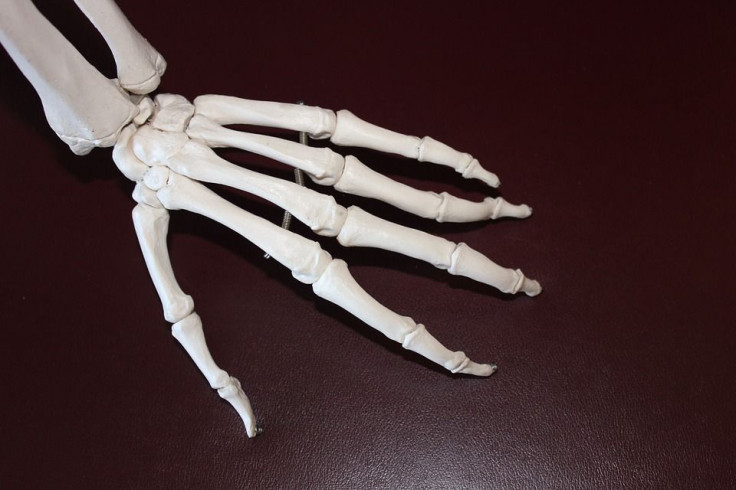Psoriatic Arthritis: 8 Signs You May Be At Risk For The Autoimmune Disease

In 2013, the Centers for Disease Control and Prevention led a collaborative effort to develop the first-ever public health agenda for psoriasis and psoriatic arthritis. Their agenda was published in the American Journal of Preventative Medicine.
“A public health approach to psoriatic diseases will allow scientists to better identify possible environmental contributions, which could potentially help us stop these diseases before they start,” Andrew D. Robertson, chief scientific and medical officer for the National Psoriasis Foundation, stated in a post by the Foundation.
Read: Psoriasis Facts And Myths: 5 Things To Know About Misunderstood Immune Disease
Psoriasis is a chronic autoimmune disease that causes patches of red, scaly skin. About 10 to 20 percent of people with psoriasis will develop an inflammatory type of arthritis known as psoriatic arthritis, according to the CDC. It causes your joints to become painful, swollen, and warm to the touch.
These are eights signs you may be at risk for psoriatic arthritis:
1. You have psoriasis. The majority of those with psoriatic arthritis develop psoriasis first.
2. You’re overweight. Although research is still growing, there's been findings associating being overweight and having psoriasis and psoriatic arthritis.
3. You have psoriasis in your nails. Of the patients with both psoriasis and psoriatic arthritis, approximately 80 percent have nail disease, research published in the Journal of the European Academy of Dermatology and Venerology reports.
4. You were young when diagnosed with psoriasis. Children are more likely than adults to experience the onset of psoriasis and psoriatic arthritis simultaneously, the National Psoriasis Foundation reports.
5. You have a family member with psoriatic arthritis and you also have psoriasis. Genetic factors are important for psoriatic arthritis risk, but the research is ongoing regarding exactly which genes are responsible.
6. You have an injury. Physical trauma may be associated with triggering psoriatic arthritis among those with psoriasis, a study concludes.
7. You have had strep throat. Common infections, such as strep throat, may be a trigger for psoriatic arthritis flare-ups, Healthline reports.
8. You have HIV. Those with the immunodeficiency disorder are more likely to have psoriatic arthritis. Psoriatic arthritis may precede the detection of HIV infection, according to the American College of Rheumatology.
Although psoriatic arthritis typically occurs in people who have psoriasis, it still can affect those who don’t have the disease. There’s currently no cure for psoriatic arthritis, but treatments including nonsteroidal anti-inflammatory drugs, immunosuppressants, and steroid injections, among other inflammation control methods may help to prevent joint pain and disability, according to Mayo Clinic.
See more: Psoriasis Associated with Higher Odds of Having One of 14 Autoimmune Diseases
Psoriasis Treatment: 5 Natural Ways To Alleviate The Skin Disorder At Home
Published by Medicaldaily.com



























